Supreme Court Term 2025-2026
We’re breaking down the cases we've asked the court to consider this term.
Latest Case Updates
Ongoing
Updated November 7, 2025
Ongoing
Updated November 5, 2025
Ongoing
Updated November 4, 2025
Ongoing
Updated October 21, 2025
Featured
U.S. Supreme Court
Nov 2025

Voting Rights
Racial Justice
Allen v. Milligan
Whether Alabama’s congressional districts violate Section 2 of the Voting Rights Act because they discriminate against Black voters. We succeeded in winning a new map for 2024 elections which, for the first time, has two congressional district that provide Black voters a fair opportunity to elect candidates of their choosing despite multiple attempts by Alabama to stop us at the Supreme Court. Despite this win, Alabama is still defending its discriminatory map, and a trial was held in February 2025 to determine the map for the rest of the decade.
In May 2025, a federal court ruled that Alabama's 2023 congressional map both violates Section 2 of the Voting Rights Act and was enacted by the Alabama Legislature with racially discriminatory intent.
Washington, D.C.
Oct 2025

Voting Rights
League of Women Voters Education Fund v. Trump
On March 25, 2025, in a sweeping and unprecedented Executive Order, President Trump attempted to usurp the power to regulate federal elections from Congress and the States. Among other things, the Executive Order directs the Election Assistance Commission‚ÄĒan agency that Congress specifically established to be bipartisan and independent‚ÄĒto require voters to show a passport or other citizenship documentation in order to register to vote in federal elections. If implemented, the Executive Order would threaten the ability of millions of eligible Americans to register and vote and upend the administration of federal elections.
On behalf of leading voter registration organizations and advocacy organizations, the ļž–” ”∆Ķ and co-counsel filed a lawsuit to block the Executive Order as an unconstitutional power grab.
U.S. Supreme Court
Oct 2025
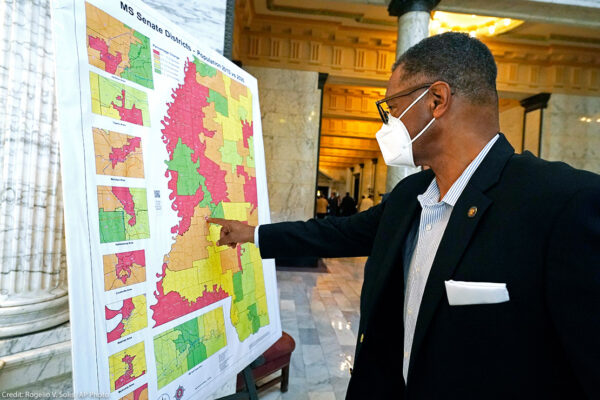
Voting Rights
State Board of Election Commissioners v. Mississippi State Conference of the NAACP
Mississippi has a growing Black population, which is already the largest Black population percentage of any state in the country. Yet. Black Mississippians continue to be significantly under-represented in the state legislature, as Mississippi’s latest districting maps fail to reflect the reality of the state’s changing demographics. During the 2022 redistricting process, the Mississippi legislature refused to create any new districts where Black voters have a chance to elect their preferred representative. The current district lines therefore dilute the voting power of Black Mississippians and continue to deprive them of political representation that is responsive to their needs and concerns, including severe disparities in education and healthcare.
U.S. Supreme Court
Oct 2025

Voting Rights
Louisiana v. Callais (Callais v. Landry)
Whether the congressional map Louisiana adopted to cure a Voting Rights Act violation in Robinson v. Ardoin is itself unlawful as a gerrymander.
Missouri
Sep 2025
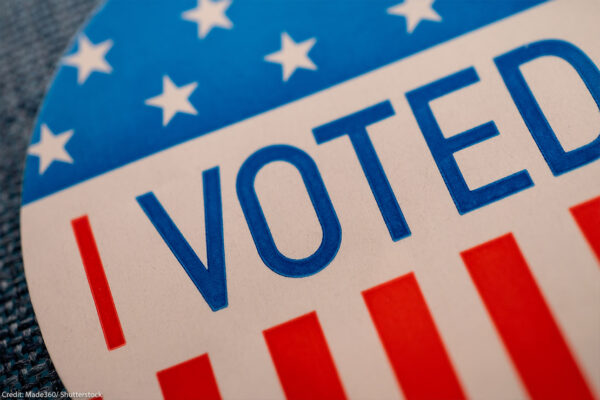
Voting Rights
Wise v. Missouri
In unprecedented fashion, the State of Missouri has redrawn the district lines used for electing members of Congress for a second time this decade. These new district lines are gerrymandered and will harm political representation for all Missourians, particularly Black residents in Kansas City, who have been divided along racial lines.
Mississippi
Aug 2025
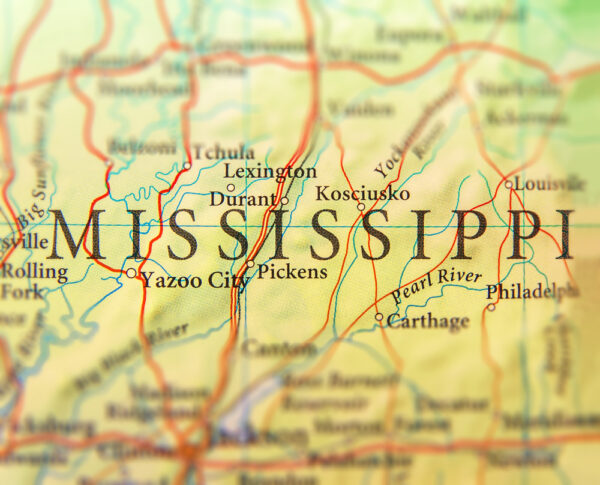
Voting Rights
White v. Mississippi State Board of Elections
District lines used to elect Mississippi’s Supreme Court have gone unchanged for more than 35 years. We’re suing because this dilutes the voting strength of Black residents in state Supreme Court elections, in violation of the Voting Rights Act and the U.S. Constitution.
Louisiana
Aug 2025

Voting Rights
Nairne v. Landry
Nairne v. Landry poses a challenge under Section 2 of the Voting Rights Act of 1965 to Louisiana’s House and Senate legislative maps on behalf of plaintiff Black voters and Black voters across the state.
Ohio
Jul 2025

Reproductive Freedom
Planned Parenthood Southwest Ohio Region et al., v. Ohio Department of Health, et al.
The ļž–” ”∆Ķ, the ļž–” ”∆Ķ of Ohio, Planned Parenthood Federation of America, the law firm WilmerHale, and Fanon Rucker of the Cochran Law Firm, on behalf of Planned Parenthood Southwest Ohio Region, Planned Parenthood of Greater Ohio, Preterm-Cleveland, Women‚Äôs Med Group Professional Corporation, Dr. Sharon Liner, and Julia Quinn, MSN, BSN, amended a complaint in an existing lawsuit against a ban on telehealth medication abortion services to bring new claims under the Ohio Reproductive Freedom Amendment, including additional challenges to other laws in Ohio that restrict access to medication abortion in the state.
U.S. Supreme Court
Apr 2024

Reproductive Freedom
Idaho and Moyle, et al. v. United States
Idaho and Moyle, et al. v. United States was appealed to the U.S. Supreme Court by Idaho politicians seeking to disregard a federal statute ‚ÄĒ the Emergency Medical Treatment and Labor Act (EMTALA) ‚ÄĒ and put doctors in jail for providing pregnant patients necessary emergency medical care. The Supreme Court heard oral arguments on this case on April 24, 2024. The Court‚Äôs ultimate decision will impact access to this essential care across the country.
All Cases
1,624 Court Cases

U.S. Supreme Court
Jun 2019
Criminal Law Reform
Smart Justice
McDonough v. Smith
When must a person file a Section 1983 civil rights case based on fabrication of evidence in a criminal proceeding?
Explore case
U.S. Supreme Court
Jun 2019

Criminal Law Reform
Smart Justice
McDonough v. Smith
When must a person file a Section 1983 civil rights case based on fabrication of evidence in a criminal proceeding?
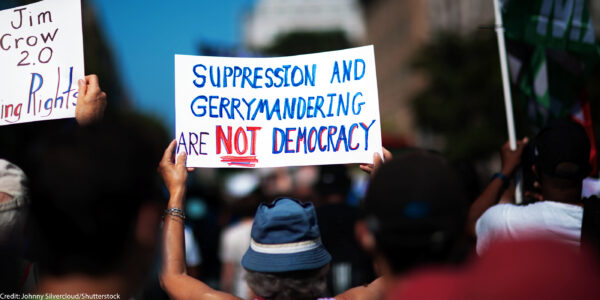
U.S. Supreme Court
Jun 2019
Voting Rights
Rucho v. Common Cause/Benisek v. Lamone (Amicus)
Whether partisan gerrymandering claims are justiciable and whether the plaintiffs in North Carolina and Maryland established that the legislatures had impermissibly sought to benefit one party over the other, regardless of how voters voted.
Explore case
U.S. Supreme Court
Jun 2019

Voting Rights
Rucho v. Common Cause/Benisek v. Lamone (Amicus)
Whether partisan gerrymandering claims are justiciable and whether the plaintiffs in North Carolina and Maryland established that the legislatures had impermissibly sought to benefit one party over the other, regardless of how voters voted.

Virginia
Jun 2019
Racial Justice
Home of Virginia, Inc. V. Wisely Properties,Llc and Multifamily Management Services, Inc.
The ļž–” ”∆Ķ and the ļž–” ”∆Ķ of Virginia, along with Relman, Dane & Colfax, PLLC, a Washington, D.C.-based civil rights law firm, filed a federal lawsuit against the owner of a Chesterfield County apartment complex for application policies that discriminate against black people. The lawsuit, filed in the U.S. District Court for the Eastern District of Virginia on behalf of Housing Opportunities Made Equal of Virginia, Inc. (HOME), explains how the blanket criminal record screening policy used at Sterling Glen Apartments is intended to keep African Americans from living there and disproportionately harms people of color.
Explore case
Virginia
Jun 2019

Racial Justice
Home of Virginia, Inc. V. Wisely Properties,Llc and Multifamily Management Services, Inc.
The ļž–” ”∆Ķ and the ļž–” ”∆Ķ of Virginia, along with Relman, Dane & Colfax, PLLC, a Washington, D.C.-based civil rights law firm, filed a federal lawsuit against the owner of a Chesterfield County apartment complex for application policies that discriminate against black people. The lawsuit, filed in the U.S. District Court for the Eastern District of Virginia on behalf of Housing Opportunities Made Equal of Virginia, Inc. (HOME), explains how the blanket criminal record screening policy used at Sterling Glen Apartments is intended to keep African Americans from living there and disproportionately harms people of color.
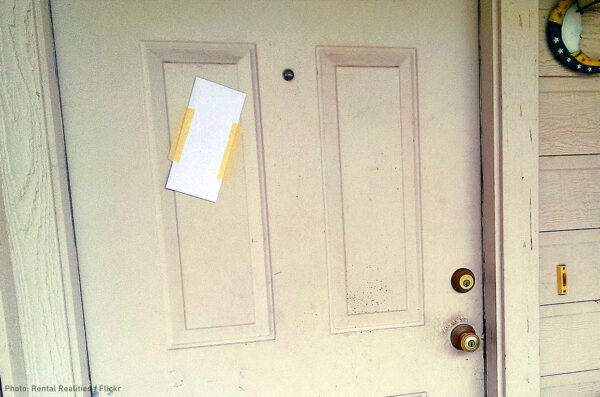
Court Case
May 2019
Women's Rights
Boston Housing Authority v. Y.A.
In December of 2018, ļž–” ”∆Ķ Women‚Äôs Rights Project and the ļž–” ”∆Ķ of Massachusetts filed an amicus brief at the Massachusetts Supreme Judicial Court supporting a domestic violence survivor who asserted the Violence Against Women Act (VAWA) as a defense to her eviction for nonpayment of rent that directly resulted from physical, emotional, and economic abuse. VAWA prohibits covered housing providers, like Boston Housing Authority, from evicting or otherwise discriminating against survivors of domestic violence for reasons caused by their abuse.
Explore case
Court Case
May 2019

Women's Rights
Boston Housing Authority v. Y.A.
In December of 2018, ļž–” ”∆Ķ Women‚Äôs Rights Project and the ļž–” ”∆Ķ of Massachusetts filed an amicus brief at the Massachusetts Supreme Judicial Court supporting a domestic violence survivor who asserted the Violence Against Women Act (VAWA) as a defense to her eviction for nonpayment of rent that directly resulted from physical, emotional, and economic abuse. VAWA prohibits covered housing providers, like Boston Housing Authority, from evicting or otherwise discriminating against survivors of domestic violence for reasons caused by their abuse.

Court Case
May 2019
Free Speech
+2 Issues
Sandvig v. Barr ‚ÄĒ Challenge to CFAA Prohibition on Uncovering Racial Discrimination Online
The ļž–” ”∆Ķ has filed a lawsuit challenging the constitutionality of the Computer Fraud and Abuse Act, which makes it a federal crime to access a computer in a manner that ‚Äúexceeds authorized access.‚ÄĚ This provision of the law often prohibits and chills academics, researchers, and journalists from testing for discrimination on the internet. The lawsuit was filed in the U.S. District Court for the District of Columbia in June 2016. The plaintiffs are academic researchers, computer scientists, and journalists who wish to investigate companies‚Äô online practices through standard academic and journalistic techniques, but are limited by the terms of service of target websites.
Explore case
Court Case
May 2019

Free Speech
+2 Issues
Sandvig v. Barr ‚ÄĒ Challenge to CFAA Prohibition on Uncovering Racial Discrimination Online
The ļž–” ”∆Ķ has filed a lawsuit challenging the constitutionality of the Computer Fraud and Abuse Act, which makes it a federal crime to access a computer in a manner that ‚Äúexceeds authorized access.‚ÄĚ This provision of the law often prohibits and chills academics, researchers, and journalists from testing for discrimination on the internet. The lawsuit was filed in the U.S. District Court for the District of Columbia in June 2016. The plaintiffs are academic researchers, computer scientists, and journalists who wish to investigate companies‚Äô online practices through standard academic and journalistic techniques, but are limited by the terms of service of target websites.
